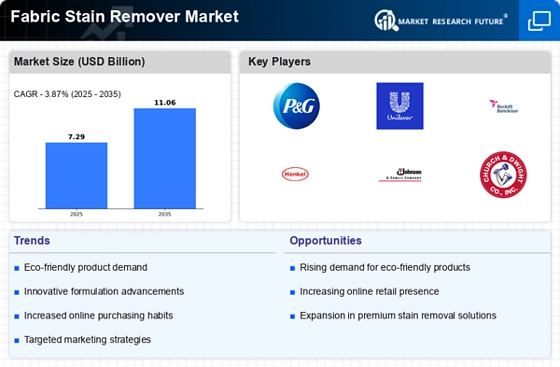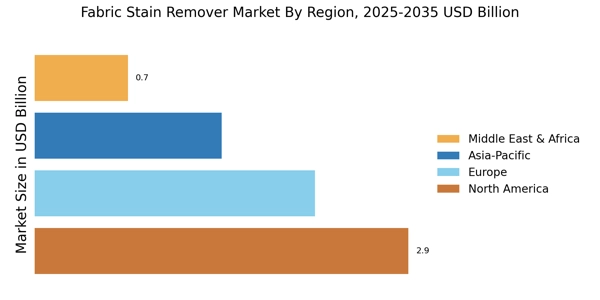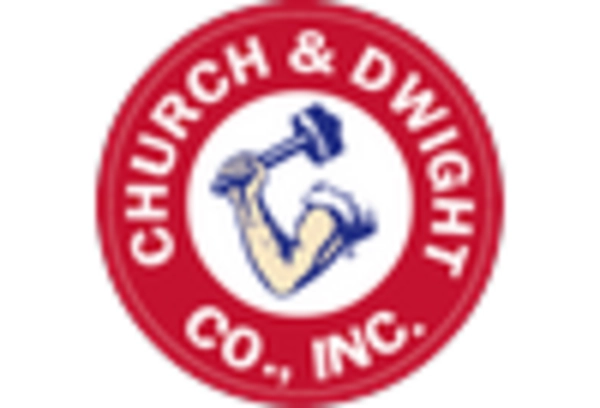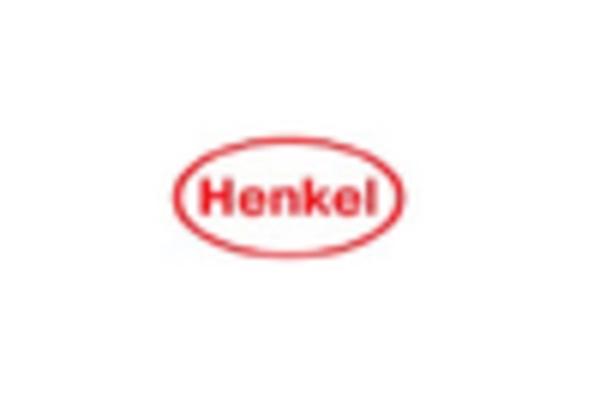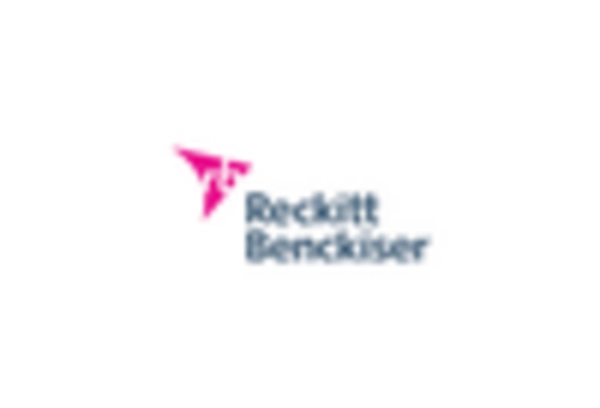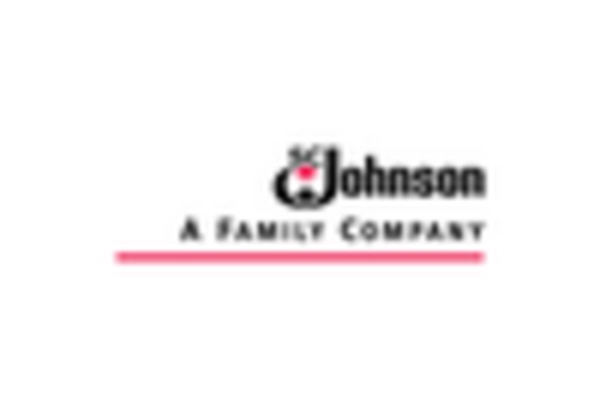Rising Consumer Awareness
The increasing awareness among consumers regarding the importance of maintaining clean and stain-free fabrics appears to be a pivotal driver in the Fabric Stain Remover Market. As individuals become more conscious of hygiene and presentation, the demand for effective stain removal solutions is likely to rise. This trend is reflected in market data, which indicates that the fabric care segment, including stain removers, is projected to grow at a compound annual growth rate of approximately 5.5% over the next few years. Consumers are actively seeking products that not only remove stains but also protect fabric integrity, thereby influencing purchasing decisions. This heightened awareness is fostering a competitive landscape where brands are compelled to innovate and enhance their offerings to meet evolving consumer expectations.
Increased Online Retailing
The surge in online retailing is transforming the Fabric Stain Remover Market. With the proliferation of e-commerce platforms, consumers now have greater access to a diverse range of stain removal products. This shift is facilitating the growth of niche brands that may not have had a significant presence in traditional retail channels. Market data suggests that online sales of fabric care products, including stain removers, are projected to grow by over 15% in the coming years. This trend is encouraging manufacturers to invest in digital marketing strategies and optimize their online presence to capture the attention of tech-savvy consumers. The convenience of online shopping is likely to continue driving demand for fabric stain removers, as consumers seek easy access to effective solutions.
Technological Advancements
Technological advancements in formulation and application methods are significantly shaping the Fabric Stain Remover Market. Innovations such as enzyme-based stain removers and eco-friendly formulations are gaining traction, appealing to environmentally conscious consumers. The introduction of advanced stain removal technologies, which can effectively target specific types of stains, is likely to enhance product efficacy and consumer satisfaction. Market data suggests that the segment of enzyme-based cleaners is experiencing a notable increase in demand, with a projected growth rate of around 6% annually. These advancements not only improve the performance of stain removers but also contribute to the overall sustainability of the fabric care sector, aligning with consumer preferences for greener products.
Shifts in Consumer Preferences
Shifts in consumer preferences towards convenience and efficiency are influencing the Fabric Stain Remover Market. As lifestyles become busier, consumers are seeking products that offer quick and effective solutions for stain removal. This trend is evident in the rising popularity of pre-treatment stain removers and on-the-go stain removal wipes. Market data indicates that the convenience segment is expected to grow by approximately 7% annually, reflecting a shift towards products that cater to the fast-paced nature of modern life. Brands are responding by innovating packaging and product formats that align with these preferences, thereby enhancing consumer engagement and driving sales in the stain remover category.
Growth of the Laundry Care Sector
The expansion of the laundry care sector is a crucial driver for the Fabric Stain Remover Market. As households increasingly prioritize laundry care, the demand for specialized stain removal products is expected to rise. Market analysis indicates that the laundry care segment is anticipated to reach a valuation of over 20 billion by 2026, with stain removers playing a vital role in this growth. This trend is further supported by the increasing frequency of laundry cycles among consumers, driven by busy lifestyles and the desire for cleanliness. Consequently, brands are focusing on developing targeted marketing strategies to promote their stain removal products, thereby enhancing visibility and accessibility in the market.


